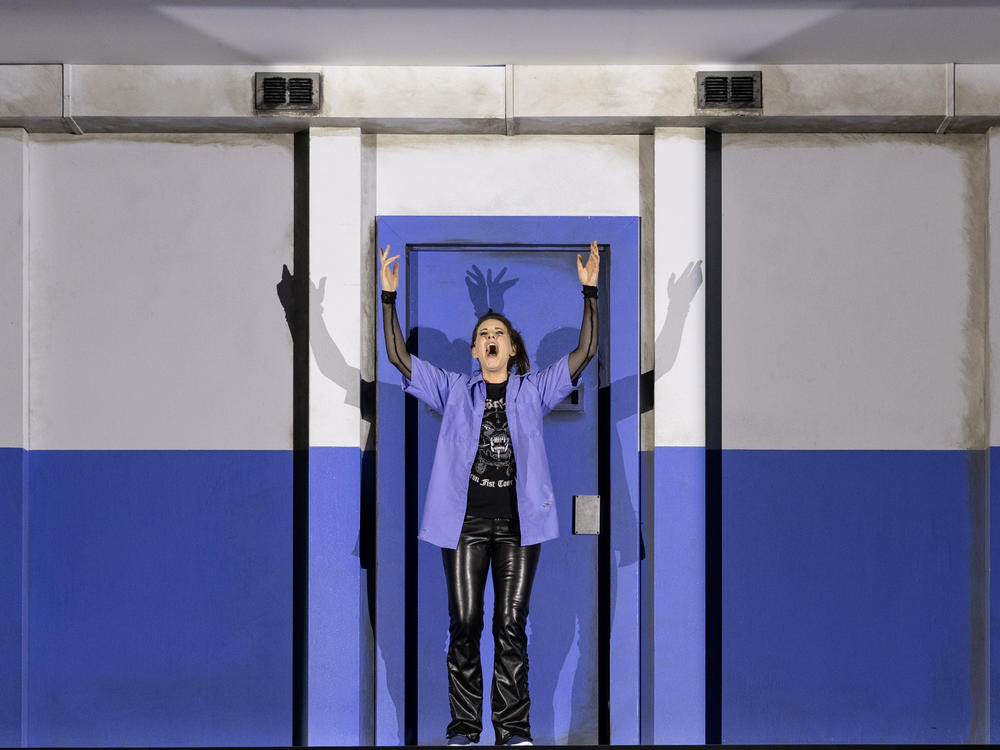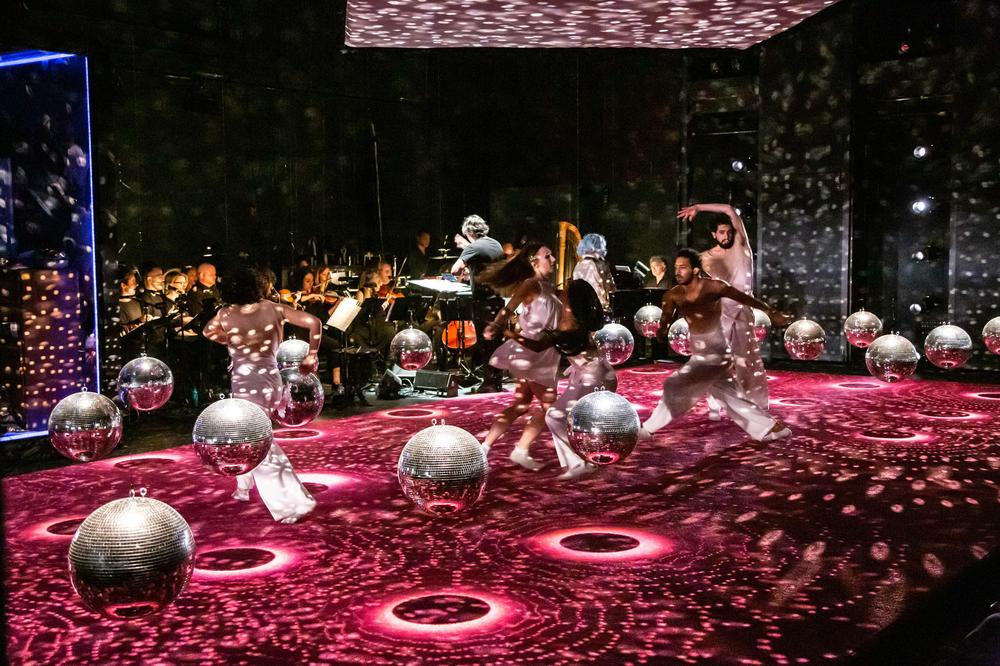Section Branding
Header Content
Who says opera needs a grand stage? This festival is all about intimate productions
Primary Content
Until a few years ago, Irish composer Emma O'Halloran had never even considered writing an opera, "because it seemed so grand, and fancy," she says. "And I didn't really feel like I would be a person who would be able to do something like that."
But she took a stab, one thing led to another, and this season she's getting her operatic debut at PROTOTYPE — a festival founded to produce operas that aren't fancy and presented in grand theaters. "We were trying to create a black box opera movement," says PROTOTYPE co-founder Beth Morrison, "and so we were really invested in the possibilities of what intimate opera and music theater could be."
This January marks the delayed 10th anniversary of the New York festival — last year was canceled because of a surge in COVID cases. It's a yearly event that presents new operas and music-theater works in intimate settings. In its short history, it has produced two works that won the Pulitzer Prize and many more that have had substantial lives beyond the festival.
Another co-founder, Kristin Marting, runs HERE, a downtown New York arts center. It has two flexible small spaces — black boxes — where many PROTOTYPE shows have premiered. "We saw this potential to have these large voices in this intimate context," Marting says. "And to also have these phenomenal musicians that are so close to you and you can have the sound really embody you, envelop you and wash over you in a completely different way."
In the 10 years the festival has been around (in 2021 it went virtual), it's produced genre-busting new works, like Angel's Bone, an allegorical piece about two fallen angels, who get abused and trafficked by a suburban couple. With a libretto by Royce Vavrek and a score by Chinese born composer Du Yun, it won the Pulitzer Prize in 2017. Some of the music evokes the renaissance. Some is pure punk.
PROTOTYPE workshopped Angel's Bone, before presenting the final production, which helped its creators hone the piece. Du Yun says she appreciates not only the support, but also being part of something bigger. "It's incredibly powerful and empowering to be feeling like a part of a movement, if you will," says the composer. "And I think PROTOTYPE gives me a sense of community." She has a new work premiering at this year's festival, In Our Daughter's Eyes.
Two years after Angel's Bone, PROTOTYPE nurtured another Pulitzer-winner, when it presented p r i s m, an opera with text by Roxie Perkins and score by Ellen Reid, which also has a difficult subject. "It was a many year journey to discover how to deal with something as sensitive and reactive as the trauma after a sexual assault in a way that was also pleasing and big enough for the stage," Reid explains. "So, it took us a while to figure out how to navigate all of that in a narrative and make it work in the medium of opera."
"We like intense work," says producer Beth Morrison. "We really like drama, and we think that opera-theater, music-theater has the tools to take those kinds of stories. I mean, there are incredible, great, dark, dramatic ... stories all through the opera canon. And I think we feel like we're just adding to that."
She hopes that Trade, which Emma O'Halloran created with her uncle, Irish playwright Mark O'Halloran, will be part of the canon, as well. The opera is about two straight men who meet for a sexual encounter.
For her part, O'Halloran says she's thrilled that her opera debut puts her in community with other composers. "I've definitely talked with past composers and I'm just like a sponge," she explains. "I absorb everything they say. ... When someone's got a tip about, like, "Oh, you really should write this way for this particular voice," I'm making notes and all of that sort of stuff. So, you'll see all of the previous composers attending all the shows, and it's just lovely. It's really wonderful."
Copyright 2023 NPR. To see more, visit https://www.npr.org.


